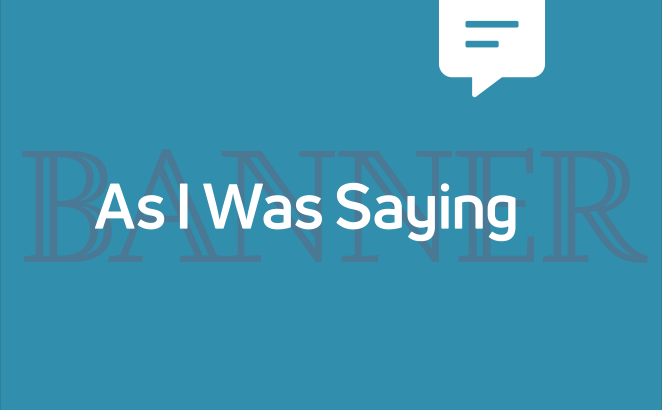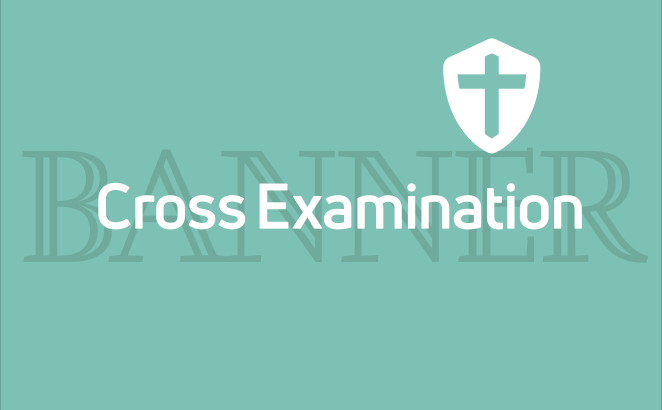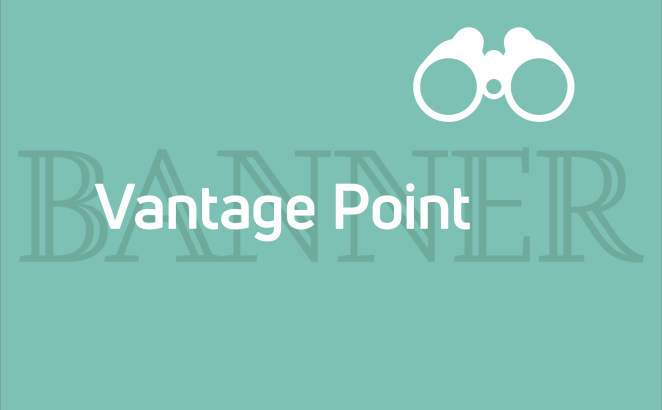I do my best to breathe slowly in the midst of his onslaught. But more importantly, I reach within myself to source that helpful Spirit who empowers and guides.
Columns
Read our regular columns on Faith Matters, Big Questions, Christian apologetics, Shiao Chong's monthly Editorial, the Discover page (especially for kids), the Vantage Point, the Other Six, and letters from Christian Reformed Church members and our readers. Our online-only columns are As I Was Saying and Behind the Banner.
- READ MORE
- READ MORE
What if, in the dance that is our life, God performs an aerial? In that moment, all we have is his hands holding us up while we go flying and the room spins around us.
- READ MORE
This issue with Kinism is personal for me, as I am in an interracial marriage. … I am, therefore, relieved that synod unanimously declared it as a heresy.
- READ MORE
As we grab hold of old toys, games, and photos, we reminisce about stories that have shaped us over the past decade. We’ve found ourselves echoing Marie Kondo’s phrase about only keeping that which “sparks joy.”
- READ MORE
Perhaps the best way to respond to people who feel this way is not with an apology or argument but with a testimony of how we’ve personally experienced God as relevant.
- READ MORE
Praying for the president has gotten an unusual amount of press lately.
- READ MORE
This is a theology not learned on the hill in the white-steepled church, but caught on the streets of the trailer park and inside the teen center while living in the shadow of the Chugach Mountains, a theology carried to me—taught to me—by those who walk on other city streets.
- READ MORE
Rachel articulated with grace and beauty so many things I had felt and experienced in my faith journey and continuous struggles with doubt. Her words empowered me and other women in ministry.
- READ MORE
Years ago, during a canoe trip on a Michigan river, I stepped into what appeared to be shallow water to pull the canoe to shore. But the water was over my head. Instantly I was disoriented, grasping for anything to provide stability.
- READ MORE
As I walked into church that morning, George, our resident artist, was busy painting a scene of children at play on one of the doors in our Kid Zone. He had a whole tray full of small bottles, each with a different color of paint. Each shape, each area, each color he applied was different.
- READ MORE
There is a reason that the most beautiful thing, the visual aesthetic referenced so often in Scripture to evoke loveliness beyond the ordinary or even the physical, is the bride arrayed. For what could be more glorious than someone beloved?
- READ MORE
We had just crossed the border from Michigan into Ontario. I was driving a van filled with seven college student worship leaders, and one of the guys piped up, “It’s two hours till we're back on campus. I’d like everyone to name their favorite Bible verse and explain why it matters to you.”
- READ MORE
The deacons say that most people are paying electronically. I’ve even heard of churches that allow people to swipe a credit card in the service. Isn’t this undermining the worshipful nature of the offering?
- READ MORE
우리는 개혁주의 전통에 주신 풍성한 지성의 은사에 대해 하나님께 감사해야 합니다.
- READ MORE
We can’t see God with our eyes. But God has made amazing things we can see that show us something about our awesome God. God created towering mountains and blazing stars and all sorts of wild and wonderful animals, and God gave us incredible eyes to see it all!
- READ MORE
During retirement we are called to discern the varied ways our new status can become an opportunity to be of service to others—our children, grandchildren, siblings, parents, churches, and wider communities.
- READ MORE
Within our churches, there is a general pushback against charging Christians with dismantling racism. The fear of white supremacy is considered to be overblown, and talking about racism is equated with progressive theology outside of the bounds of Christian orthodoxy.
- READ MORE
Why didn’t the early Reformers more seriously seek reunion with Eastern Orthodoxy after rejecting the excesses and innovations of Western Catholicism?
- READ MORE
Steve Timmermans’ essay “Speaking with a Reformed Accent” (April 2009) proves an incentive to ponder the distinctiveness of the Reformed perspective.
- READ MORE
We should be grateful to God for the robust intellectual gifts of the Reformed tradition. But we cannot be blind to the very real temptation of loving the gifts more than the Giver. Have we loved our Reformed theology and confessions more than the God they point to?
- READ MORE
Sometimes serving Jesus invites us into a holy madness that makes little sense to the world.
- READ MORE
Helpful input convinced me that online dating is a viable option for anyone seeking a mate.
- READ MORE
Is the Christian Reformed Church so determined to increase its numbers that it’s willing to fit in, make no waves, and offend no one?
- READ MORE
척추는 단단 하면서도 유연합니다. 우리 몸의 중심을 잡으면서도 몸이 움직일 수 있게 해 줍니다. 척추와 같은 태도는 경계의 필요는 인정하면서도 단정적인 태도는 피합니다.













